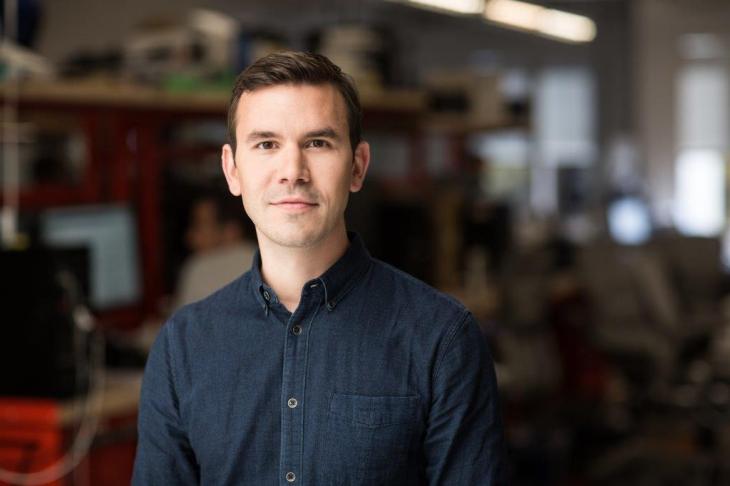
[Update 8/21/2019] It’s only been a week since Nate Mitchell announced his exit from Oculus. Now another executive on Facebook’s VR team has departed the company. Variety revealed today that Max Cohen, who led the mobile VR efforts at Oculus, is now out. Cohen had been with Oculus since 2014 and oversaw the Samsung partnership for Gear VR, and he then went on to lead development of Oculus Go, followed by Oculus Quest. A reason for Cohen’s exit was not given, and Facebook declined to comment.
Original story (8/14/2019):
Oculus was the darling of Kickstarter in 2012. As a scrappy VR startup, Oculus’ founders were able to position the company to raise an impressive $2.4 million. Two years later, in March 2014, Oculus was snatched up by Facebook for $2 billion. This week, the only remaining co-founder at Oculus, announced his departure.
“After seven incredible years, I’ve decided to move on from Oculus / Facebook,” Mitchell, who had been serving in VR product development, stated in a Reddit post. “I expect the incredible team at Facebook to continue to surprise and delight us on this mission to build the next computing platform. I can’t wait to see what comes next.”
In the years since the acquisition by Facebook, we’ve seen each member of the original founding Oculus team step aside, including Jack McCauley, Palmer Luckey (who ultimately left after it was revealed he was supporting a pro-Trump “shitposting” group), Brendan Iribe last year, and Michael Antonov earlier this year.
Iribe’s departure, in particular, was eye-opening because it came with the revelation that internal tensions between Oculus and its parent company seemed to be growing. A source at the time told TechCrunch that Facebook’s executive team had “fundamentally different views on the future of Oculus that grew deeper over time.” Iribe, who had switched roles to lead a PC VR group at Facebook, was reportedly concerned that Oculus was looking at a “race to the bottom” when it comes to VR performance.
Facebook did stress to GameDaily in that news story that “PC VR is still a category we are investing in. It’s still a part of our strategy,” and with the recent launch of the more powerful Oculus Rift S, that certainly holds true. However, the untethered and much less powerful Oculus Quest is what has far more of the industry buzzing right now.
The Quest may have represented the so-called “race to the bottom” that Iribe was concerned with, but the device went on to generate $5 million in content sales only two weeks after launching. SuperData has estimated that Quest could sell over 1 million units this year. Facebook desperately wants VR to become mainstream, and Quest would appear to be a step in the right direction. It’s just that some of the original Oculus team may not have shared the same views on this direction.
“While Mark Zuckerberg is still a major booster of VR, it’s clear that the vision for the future of VR at Facebook has shifted away from what many Oculus co-founders had in mind,” Carter Rogers, Principal Analyst at SuperData, told GameDaily. “The Oculus Rift Developer Kit was positioned as a high-end PC gaming peripheral on Kickstarter. Now, however, Oculus is happy to let other companies like HTC and Valve pursue the bleeding edge of PC VR technology. Meanwhile, Oculus has enjoyed great success with more accessible, but less powerful, standalone VR devices. Through the end of Q2 2019, Oculus has sold 1.3M Go headsets and 347K Quest headsets.”

Mark Zuckerberg’s stated goal of 1 billion people in VR may not ever happen, but the long-term could see AR play a bigger role, Rogers added: “AR… already reached 1.1 billion people last year thanks to the popularity of apps with AR features like Pokémon GO, Snapchat and TikTok. It’s likely Facebook’s future endeavors in immersive technology will encompass both VR and AR to reach the largest audience possible.”
Strategy aside, it’s clear that Facebook’s corporate culture doesn’t always sit well with the leaders of companies it acquires. Instagram co-founders Kevin Systrom and Mike Krieger also left the company, with The Verge citing “increasing tension with Facebook” and “resentment” from Facebook management over Instagram’s rapid rise. WhatsApp co-founder Brian Acton also left Facebook and explained that he felt regret about selling out to a company that exploited users’ privacy, alluding the the Cambridge Analytica data scandal that cost Facebook $5 billion in fines.
“At the end of the day, I sold my company,” Acton told Forbes. “I sold my users’ privacy to a larger benefit. I made a choice and a compromise. I live with that every day.”
It’s unclear how much the privacy issues weighed on the conscious of any of the Oculus founders who left Facebook, but there could be a more selfish reason for the timing of their departures: stock options.
In the quarterly earnings report from April 2014 (Facebook’s first financial statement following the Oculus purchase), the company spelled out its agreement with Oculus and its stock-based compensation plan.
“In March 2014, we entered into an agreement to acquire Oculus VR, Inc. (Oculus), a privately-held company developing virtual reality technology, for 23,071,377 shares of our Class B common stock and approximately $400 million in cash. Further, up to an additional 3,460,706 shares of our Class B common stock and $60 million in cash would be payable upon the completion of certain milestones. The earn-out portion that would be payable to employee stockholders is also subject to continuous employment through the applicable payment dates.” [Emphasis ours]
Later Facebook noted, “Of the $297 million of share-based compensation and other compensation expense excluded from the purchase consideration above, approximately $13 million was recognized as share-based compensation at closing as a result of the vesting provisions of employee replacement awards on the acquisition date. The remaining $284 million is subject to continuous employment and will be recognized as share-based compensation and other compensation expense over the required service period of four years.” [Again, emphasis ours]
Iribe’s departure last year came a little over four years since the acquisition. Mitchell served five years. They may not have seen eye-to-eye with Facebook on the direction the company wanted to take Oculus, but it’s understandable that they wouldn’t want to walk and leave millions on the table (although that’s precisely what WhatsApp’s Acton did).
 GameDaily.biz © 2026 | All Rights Reserved.
GameDaily.biz © 2026 | All Rights Reserved.